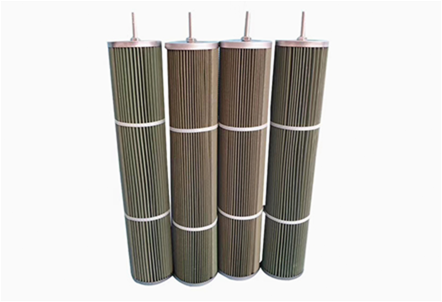 Tel:
+8615930870079
Tel:
+8615930870079
اکتوبر . 11, 2024 14:05 Back to list
Understanding HEPA Cartridge Benefits for Improved Air Quality and Health
Understanding HEPA Cartridges The Key to Clean Air
In an era where air quality has become a growing concern, HEPA (High Efficiency Particulate Air) cartridges have emerged as essential components in air filtration systems. HEPA technology is renowned for its ability to trap a significant amount of particles, making it a critical player in various environments, including homes, offices, and hospitals. This article delves into the significance of HEPA cartridges, their functionality, and the types available on the market.
What is a HEPA Cartridge?
A HEPA cartridge is a filter made from a mat of randomly arranged fibers, typically composed of glass or synthetic materials. These fibers create a labyrinth of air pathways that capture airborne particles as air flows through the filter. To qualify as a true HEPA filter, the cartridge must meet strict standards set by the U.S. Department of Energy; it must trap at least 99.97% of particles that are 0.3 microns in diameter. This includes dust mites, pollen, pet dander, mold spores, and even some bacteria and viruses.
The Importance of HEPA Filtration
The primary purpose of HEPA cartridges is to improve indoor air quality. Many people are unaware of the pollutants that can accumulate in their living and working environments. These pollutants can exacerbate allergies, asthma, and other respiratory issues. By incorporating HEPA filtration, individuals can significantly reduce the concentration of harmful particles in the air.
In addition to health benefits, HEPA cartridges also contribute to environmental sustainability. They minimize the amount of particulate matter released into the atmosphere, promoting cleaner air in both indoor and outdoor settings. With growing concerns about air pollution, the use of HEPA filters in air purifiers, vacuum cleaners, and HVAC systems is increasingly recognized as an effective solution.
How HEPA Cartridges Work
HEPA cartridges utilize several mechanisms to trap particles interception, inertial impaction, and diffusion
.1. Interception As air flows through the filter, particles adhering to a fiber are trapped when they come close enough to the fiber's surface. 2. Inertial Impaction Larger particles cannot follow the airstream due to their mass and inertia, causing them to collide with the fibers and become captured.
hepa cartridges

3. Diffusion Smaller particles exhibit erratic movement, colliding with other air molecules. This random motion increases their chances of being caught by the fibers.
By employing these mechanisms, HEPA cartridges are exceptionally efficient in removing a wide range of airborne contaminants.
Types of HEPA Cartridges
There are various types of HEPA cartridges available, each designed for specific applications
1. True HEPA Filters These meet the strict HEPA standards and are widely used in residential and commercial air purifiers. 2. HEPA-Type Filters These filters may not meet the stringent HEPA requirements but still provide a level of filtration that is better than standard filters. They are often found in less expensive air purifiers.
3. Washable HEPA Filters These are designed to be cleaned and reused, offering a more sustainable option compared to disposable filters. However, they may not perform at the same level as traditional HEPA filters over time.
4. ULPA Filters Ultra-Low Penetration Air filters are even more efficient than HEPA filters, capable of trapping 99.999% of particles as small as 0.12 microns. They are primarily used in specialized environments such as semiconductor manufacturing or laboratory settings.
Conclusion
In conclusion, HEPA cartridges are vital for ensuring clean and healthy air, particularly in environments where air quality is paramount. Their unique design and effectiveness in trapping a broad spectrum of airborne pollutants make them an invaluable asset in both personal and professional settings. As awareness of air quality continues to rise, the use of HEPA technology will likely increase, providing individuals with the means to breathe easier and live healthier lives. Investing in quality HEPA filters can lead to substantial health benefits and contribute to a more sustainable future.
-
Nano Fiber Technology: Revolutionizing Cartridge Dust Collector FiltersNewsAug.06,2025
-
How Activated Carbon Air Cartridges Eliminate OdorsNewsAug.06,2025
-
Dust Filter Cartridge Handling Fine Particulate MatterNewsAug.06,2025
-
Cartridge Dust Collector Filter for Welding Fume ExtractionNewsAug.06,2025
-
Activated Carbon Filter Cartridge Effectiveness Against VOCsNewsAug.06,2025
-
Activated Carbon Air Filter Cartridge Benefits ExplainedNewsAug.06,2025

 Email:
Email:





